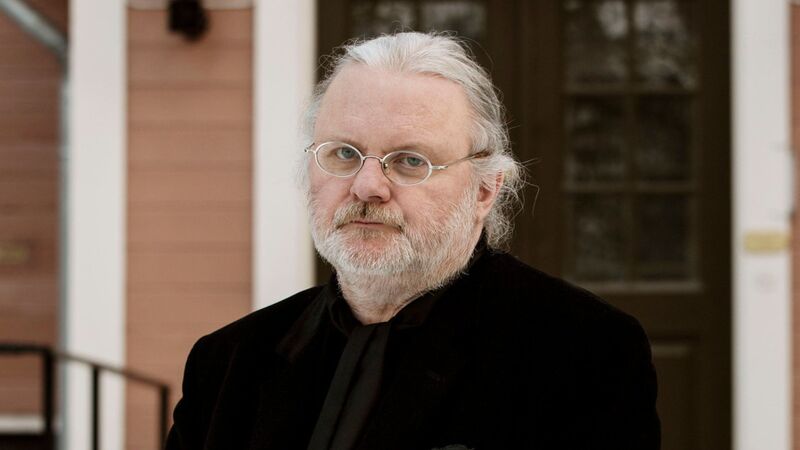You are viewing your 1 free article this month. Login to read more articles.
Ned Beauman's Teleportation Accident
Moving from the experimental theatres of 1930s Berlin to the absinthe bars of Paris and the physics laboratories of Los Angles by way of the 17th and 20th centuries, Ned Beauman's The Teleportation Accident is a historical novel, but one that is never quite about history.
Its star is Egon Loeser, an egocentric and brash young Berliner, who continually lets history happen around him, whilst he is steadfastly hungover. Beauman's second novel, the comical story follows the paths of various Weimar Republic emigres, as they are brought together through the building of a teleportation device in Los Angeles - exploring their sexual escapades and dubious moralities along the way.
Beauman wanted to write about emigres, but knew he "didn't want to write a grown-up, plausible novel about them, because I don't really have the intellectual seriousness to do that. I wanted to make my characters as different to the real emigres as possible. The two qualities that I felt defined the actual emigres most was a sadness to leave Berlin and a feeling that they're at the mercy of history; so I reversed those for Loeser. He hates Berlin, is happy to leave and doesn't care about history at all. Part of Loeser's personality is that he refuses to adapt to where he is: he moves to LA and any normal person would have a great time there - there's good weather, good food - but he's just too vindictive and begrudging to allow any of that pleasure to seep in to him.
Beauman suggests "that if you look at almost any historical novel, the basic plot is a love affair torn apart by history. But, that just doesn't reflect people's lives. None of my break ups have been the result of larger historical forces. Most breakups in history have not been to do with history. So it is kind of telling a lie if every book you write is about that."
The love affairs that are present in The Teleportation Accident are for the most part highly dysfunctional. Unlike most Weimar emigres, Loeser is not driven across the globe because of religious persecution, but for the sake of his own carnal triumphs. Obsessed with his former student Adele Hitler (no relation), he follows her around the world, fuelled simply by misplaced sexual desire. In turn, Adele sleeps her way through most of the men and women pre-war Berlin has to offer, before falling in love in LA, with the nefarious physicist Professor Franklin Bailey.
"Until I'm in a normal relationship, none of my characters will be in normal relationships. No, that's not fair, some of them are functional, and later in life Adele becomes much more well adjusted, but we are seeing them most in their twenties, when they're still making all sorts of mistakes, and I find that much more interesting."
Filled with real historical figures, like the playwright Bertold Brecht and the author H.P. Lovecraft, Beauman explains that the initial spark of inspiration for the novel was John Whiteside Parsons, a rocket scientist who worked at the California Institute of Technology in the 1940s, and who Franklin Bailey is based on. "I have this rule that a real historical figure will never appear on stage‚ in one of my books, so I wanted it to be inspired by him, but not about him exactly. So I had to come up with another interesting, slightly nebulous technology that might also have some sort of paranormal edge to it; teleportation seemed perfect, because the crux of the book is about people being abruptly moved from place to place."
Much like The Teleportation Accident, Beuman's debut novel, Boxer Beetle, moves through different time periods, switching between modern day London and 1930s England, something he enjoys doing: "I really liked William Boyd's Any Human Heart, and I liked the idea of writing about a character throughout their whole life. When you're writing about history it is much more satisfying to take a full span of things. I don't think I could write a whole book set in one time; you would have all of these premonitions of disaster without being able to follow them up, or the aftermath of disaster without being able to anticipate it."
The fact that both novels have sections set in 1930s is more coincidence than conscious decision, says Beauman: "Boxer Beetle had to be set in the 30s because I wanted to write about eugenics and the 30s was the last time eugenics was a respectable ideology. With this one, I wanted to write about Weimar emigres and the 30s is when that happened. But, I'm kind of sick of it now, the next one (which Beauman is currently writing), thank goodness, is set in May 2010 in South London. No more absinthe, no more jazz, no more bob hair-cuts, no more Nazis."
The Teleportation Accident is out on 19 July, published by Sceptre. Beauman is appearing at Latitude Festival this weekend.















